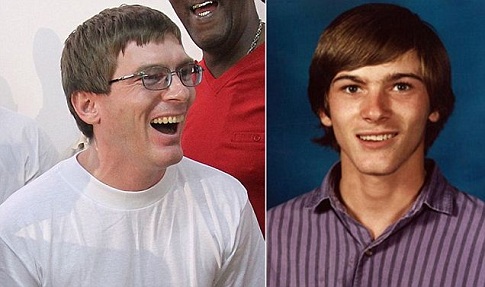
After 15 years of solitary confinement on Louisiana’s death row, Damon Thibodeaux became the 300th person exonerated based on DNA evidence. He had been wrongfully convicted of raping and strangling his 14-year-old step-cousin Crystal Champagne, largely based on a coerced confession.
Five years ago, the Innocence Project and the office of Jefferson Parish DA Paul Connick reopened the investigation into his case and last Friday revealed compelling DNA evidence that was used to exonerate him.
At a halfway house called Resurrection After Exoneration, Thibodeaux observed:
“It’s a surreal walk. It’s not something you can prepare yourself for because you’ve been in those (death row) conditions so long.”
He is the 141st person exonerated from death row, though only 18 of those have been because of DNA evidence.
Police Officers Walter Gorman and Dennis Thornton interrogated Thibodeaux for 9 hours before he falsely confessed to the crime due to extreme exhaustion. Immediately after resting and eating, he recanted the confession. Errors in his confession, such as the identification of the murder weapon and the crime scene, support his innocence. Since his interrogation, he has consistently maintained his innocence despite being offered a life sentence in exchange for pleading guilty.
In about 25% of DNA exoneration cases, false confessions led to the suspect’s conviction. The phenomenon of false confessions is not only the result of aggressive police interrogation but also police contamination of the confession in which the suspect is fed details of the crime to make it seem plausible. Thibodeaux was just another victim of this corrupt practice.
There was no physical evidence linking Thibodeaux to the crime and a sample of blood found on the murder weapon excluded him as the perpetrator. This sample may aid in the search for the real killer, and this is important because the Champagne family deserves some measure of justice.
Thibodeaux’s exoneration, the 2nd death row exoneration this year, highlights the fundamental flaw in the archaic practice of state executions. There is no room for doubt when imposing an irreversible sentence, but there is no way to eliminate error (intentional or otherwise) from our criminal justice system. Cases like Thibodeaux’s remind us that Louisiana, and all states, should be denied the power to impose the death penalty.
